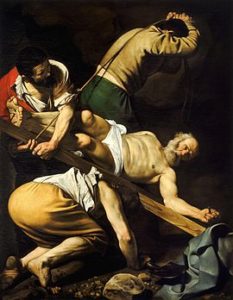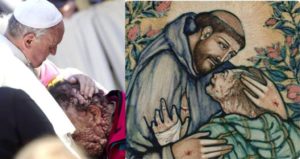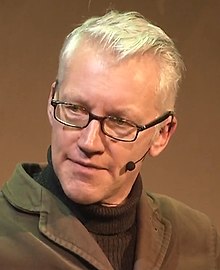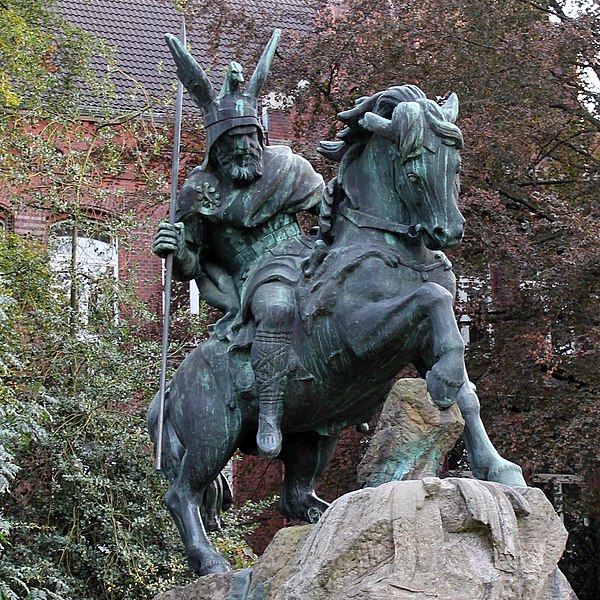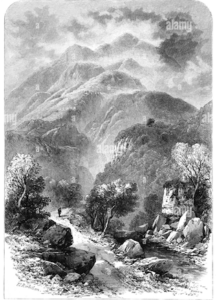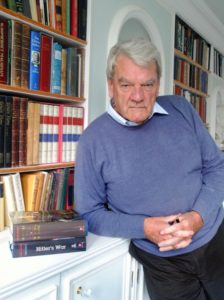Or:
How the Woke Monster originated
See what I wrote on Saturday about Tom Holland’s book Dominion, some of whose passages from the Preface I quote below. Holland contrasts the jovial spirit of the Greco-Roman world with the medieval spirit after the Church infected the minds of Europeans:
Something fundamental had indeed changed. ‘Patience in tribulation, offering the other cheek, praying for one’s enemies, loving those who hate us’: such were the Christian virtues as defined by Anselm. All derived from the recorded sayings of Jesus himself. No Christians, then, not even the most callous or unheeding, could ignore them without some measure of reproof from their consciences. [page 9]
Because the American racial right is ignorant of European history, they don’t realise that the Woke Monster—i.e., the inversion of Greco-Roman values—has been suffered by whites since the Middle Ages, not only in recent years:
God was closer to the weak than to the mighty, to the poor than to the rich. Any beggar, any criminal, might be Christ. ‘So the last will be first, and the first last.’ To the Roman aristocrats who, in the decades before the birth of Jesus, first began to colonise the Esquiline Hill with their marble fittings and their flowers beds, such a sentiment would have seemed grotesque. [page 9]
But Holland is similar to Kevin MacDonald in one respect. Although he has abandoned the faith of his childhood, he is still sympathetic to Christianity in some ways. Holland is a secular historian, and like most secular historians that makes him dangerous: he gives us the impression that he is objective, not what we have been calling a neochristian. For example, in the Preface Holland refers to Nero as a ‘malignant Caesar’ (page 10). If the visitor has read the masthead of this site, the Spaniard’s essay on the Judean war against Rome and how Christians wrote history, he will remember that from the ancient world these Judeo-Christians were engaged in defaming figures like Caligula and Nero because they took anti-Jewish measures. (Believing mainstream historians is akin to believing what CNN has said about Trump.)
In the middle of Dominion, the book contains splendid colour reproductions such as the following, in the context of the reversal of classical to Christian values, with St Peter, the very vicar of Christ on earth, depicted in this way:
No ancient artist would have thought to honour a Caesar by representing him as Caravaggio represented Peter: tortured, humiliated, stripped almost bare. And yet, in the city of the Caesars, it was a man broken to such a fate who was honoured as the keeper of ‘the keys of the kingdom of heaven’. The last had indeed become first… [page 10]
In the Middle Ages, no civilisation in Eurasia was as congruent with a single dominant set of beliefs as was the Latin West with its own distinctive form of Christianity. Elsewhere, whether in the lands of Islam, or in India, or in China, there were various understandings of the divine, and numerous institutions that served to define them; but in Europe, in the lands that acknowledged the primacy of the pope, there was only the occasional community of Jews to disrupt the otherwise total monopoly of the Roman Church. [page 11]
As we have often insisted in discussing the climax of the Spaniard’s essay, the incredible juggling act that the Judeo-Christians performed in a process that culminated with Emperor Theodosius II, was to allow only Judaism and Judeo-Christianity as the religions of the Roman Empire. No other—and under no circumstances the previous religions with Aryan gods!
Well might the Roman Church have termed itself ‘catholic’: ‘universal’. There was barely a rhythm of life that it did not define. From dawn to dusk, from midsummer to the depths of winter, from the hour of their birth to the very last drawing of their breath, the men and women of medieval Europe absorbed its assumptions into their bones. Even when, in the century before Caravaggio, Catholic Christendom began to fragment, and new forms of Christianity to emerge, the conviction of Europeans that their faith was universal remained deep-rooted. It inspired them in their exploration of continents undreamed of by their forefathers; in their conquest of those that they were able to seize, and reconsecrate as a Promised Land… [page 11]
Time itself has been Christianised. [page 12]
If today’s members of the racial right were not charlatans, the first thing they would want to do would be to proclaim that the coming new age is no longer to be measured by the birth of a non-existent Jew (pace Holland, Jesus didn’t exist), but of the Aryan man about whom Savitri Devi wrote: ‘To the god-like Individual of our times; the Man against Time; the greatest European of all times; both Sun and Lightning…’ (see the featured post).
How was it that a cult inspired by the execution of an obscure criminal in a long-vanished empire came to exercise such a transformative and enduring influence on the world? To attempt an answer to this question, as I do in this book, is not to write a history of Christianity. Rather than provide a panoramic survey of its evolution, I have sought instead to trace the currents of Christian influence that have spread most widely, and been most enduring into the present day. That is why—although I have written extensively about the Eastern and Orthodox Churches elsewhere, and find them themes of immense wonder and fascination—I have chosen not to trace their development beyond antiquity. My ambition is hubristic enough as it is: to explore how we in the West came to be what we are, and to think the way that we do… [page 12]
Today, at a time of seismic geopolitical realignment, when our values are proving to be not nearly as universal as some of us had assumed them to be, the need to recognise just how culturally contingent they are is more pressing than ever. To live in a Western country is to live in a society still utterly saturated by Christian concepts and assumptions. This is no less true for Jews or Muslims than it is for Catholics or Protestants. Two thousand years on from the birth of Christ, it does not require a belief that he rose from the dead to be stamped by the formidable—indeed the inescapable—influence of Christianity. Fail to appreciate this, and the risk is always of anachronism… [page 13]
Remember the negrolatric revolution (BLM riots) that surprised everyone less those who see recent history as the explosion of the Christian sun in its secular, incendiary form: a red giant that I have called neochristianity (although it’s more precise to see it as ‘neofranciscanism’)?
The West, increasingly empty though the pews may be, remains firmly moored to its Christian past. There are those who will rejoice at this proposition; and there are those who will be appalled by it. Christianity may be the most enduring and influential legacy of the ancient world, and its emergence the single most transformative development in Western history, but it is also the most challenging for a historian to write about. [page 13]
One thing I like about Holland’s prose is that he sprinkles his erudite treatise with personal vignettes:
…although I vaguely continued to believe in God, I found him infinitely less charismatic than the gods of the Greeks: Apollo, Athena, Dionysus. I liked the way that they did not lay down laws, or condemn other deities as demons; I liked their rock-star glamour. As a result, by the time I came to read Edward Gibbon and his great history of the decline and fall of the Roman Empire, I was more than ready to accept his interpretation of the triumph of Christianity: that it had ushered in an ‘age of superstition and credulity’. My childhood instinct to see the biblical God as the po-faced enemy of liberty and fun was rationalised. The defeat of paganism had ushered in the reign of Nobodaddy, and of all the various crusaders, inquisitors and black-hatted Puritans who had served as his acolytes. Colour and excitement had been drained from the world. ‘Thou hast conquered, O pale Galilean,’ wrote the Victorian poet Algernon Charles Swinburne, echoing the apocryphal lament of Julian the Apostate, the last pagan emperor of Rome. ‘The world has grown grey from thy breath.’ Instinctively, I agreed. [pages 15-16]
Then Holland says something that reminds me of Yockey’s words in Imperium: that Europeans claim to be based on the Greco-Roman world when in fact they are completely different civilisations:
Yet over the course of the past two decades, my perspective has changed. When I came to write my first works of history, I chose as my themes the two periods that had always most stirred and moved me as a child: the Persian invasions of Greece and the last decades of the Roman Republic. The years that I spent writing these twin studies of the classical world, living intimately in the company of Leonidas and of Julius Caesar, of the hoplites who had died at Thermopylae and of the legionaries who had crossed the Rubicon, only confirmed me in my fascination: for Sparta and Rome, even when subjected to the minutest historical enquiry, retained their glamour as apex predators. They continued to stalk my imaginings as they had always done: like a great white shark, like a tiger, like a tyrannosaur. Yet giant carnivores, however wondrous, are by their nature terrifying. The more years I spent immersed in the study of classical antiquity, so the more alien I increasingly found it. The values of Leonidas, whose people had practised a peculiarly murderous form of eugenics and trained their young to kill uppity Untermenschen by night, were nothing that I recognised as my own; nor were those of Caesar, who was reported to have killed a million Gauls, and enslaved a million more. It was not just the extremes of callousness that unsettled me, but the complete lack of any sense that the poor or the weak might have the slightest intrinsic value. Why did I find this disturbing? Because, in my morals and ethics, I was not a Spartan or a Roman at all. That my belief in God had faded over the course of my teenage years did not mean that I had ceased to be Christian. For a millennium and more, the civilisation into which I had been born was Christendom. Assumptions that I had grown up with—about how a society should properly be organised, and the principles that it should uphold—were not bred of classical antiquity, still less of ‘human nature’, but very distinctively of that civilisation’s Christian past. So profound has been the impact of Christianity on the development of Western civilisation that it has come to be hidden from view. It is the incomplete revolutions which are remembered; the fate of those which triumph is to be taken for granted. [pages 16-17]
And in the final words of the Preface, Holland tells us:
The ambition of Dominion is to trace the course of what one Christian, writing in the third century AD, termed ‘the flood-tide of Christ’: how the belief that the Son of the one God of the Jews had been tortured to death on a cross came to be so enduringly and widely held that today most of us in the West are dulled to just how scandalous it originally was. This book explores what it was that made Christianity so subversive and disruptive; how completely it came to saturate the mindset of Latin Christendom; and why, in a West that is often doubtful of religion’s claims, so many of its instincts remain—for good and ill—thoroughly Christian. [page 17]
